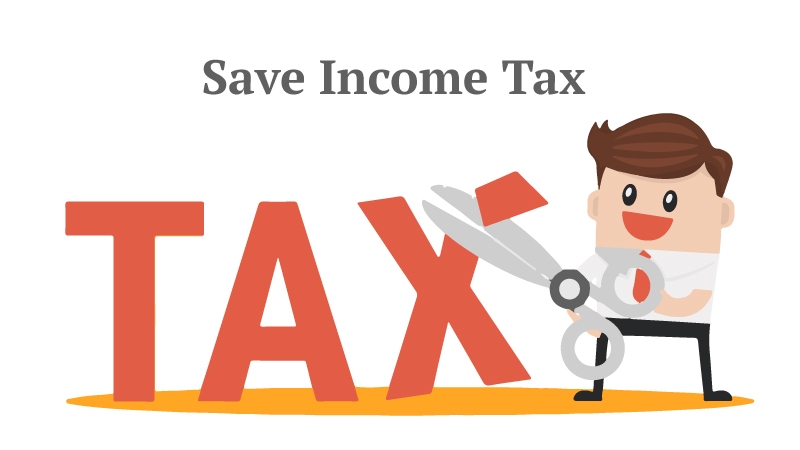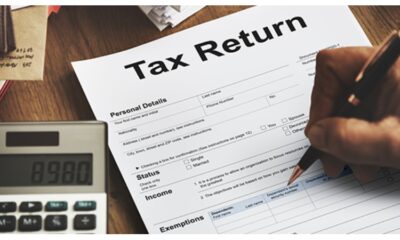Startup
Best Tips to Save Income Tax

The period between April 1, 2023, and March 31, 2024, is referred to as the fiscal year 2023–2024.
The Income Tax Return (ITR) for the earnings of 2023–24 (AY 2024–25) must be filed by July 31 to avoid a late fee.
It is important to remember that this deadline only applies to income earned through March 31 of the financial year 2023–2024 for those who don’t need an audit.
If an income earns a tax audit report, it must be submitted by October 31st.
On the other hand, you have until December 31 to file a late return for the same fiscal year if you fail to file your ITR by July 31. But in that case, there will be some fines for the individual.
The period between April 1, 2023, and March 31, 2024 is referred to as the fiscal year 2023–2024.
You file your returns and declare your investments for tax assessment during the assessment year (AY), which is the year of review for FY 2023–2024.
If you will be filing an ITR under the Old Tax Regime, here are some strategies to reduce your income tax.
Public Provident Fund (PPF)
Because the government backs the Public Provident Fund (PPF), it is one of the most popular investment options. PPF investments up to ₹1.5 lakh are eligible for tax exemptions under Section 80C of the Income Tax Act, 1961. Furthermore, neither the interest earned nor the maturity amount will be subject to taxation.
Open NPS account
Tax advantages are also provided by long-term retirement savings plans like the National Pension System. You can make regular contributions to try to increase the retirement corpus, and you can withdraw 60% of the total amount at maturity. According to Section 80CCD (1), a salaried employee may invest up to 10% of their basic salary and deduct administration costs.
Section 80TTA
Interest on deposits made solely into savings accounts is exempt from tax up to ₹10,000 under section 80 TTA. The amount deposited in recurring and fixed deposits is not covered by this.
Rebate for Housing Allowance
Approximately ₹ 2,00,000 of the interest you pay the bank in total interest payments monthly is tax-free.
Health insurance exemption
You will receive an income tax exemption on the first ₹ 25,000 of your health insurance premiums paid for yourself, your wife, and your children if you are under 60. However, if your parents are over 60 and you are also paying a premium for them, you can receive an extra rebate of up to ₹ 50,000.
Rebate on 80 DD
You may be eligible for an income tax exemption on the costs incurred for any dependents who are specially-abled.
Exemption of 80DDB
A tax exemption is granted under Section 80DDB of the Income Tax Act on the amount paid for a dependent’s medical treatment of a specific illness. These illnesses include AIDS, cancer, AIDS, dementia, aphasia, Parkinson’s, renal failure, thalassemia, and hemophilia.
-

 Education3 weeks ago
Education3 weeks agoBelfast AI Training Provider Future Business Academy Reaches Milestone of 1,000 Businesses Trained
-

 Business4 weeks ago
Business4 weeks agoAdel En Nouri’s Tips for Writing a Business Plan in 2026 That Actually Works
-

 Tech4 weeks ago
Tech4 weeks agoJonathan Amoia’s Insights on the Intoxication of Artificial Intelligence
-

 Sports3 weeks ago
Sports3 weeks agoUnited Cup 2026: Full Schedule, Fixtures, Format, Key Players, Groups, Teams, Where and How to Watch Live
-

 Health4 weeks ago
Health4 weeks agoTolga Horoz: How Developing an Interest in How People Solve Problems Shapes Better Thinking and Innovation
-

 Cryptocurrency4 weeks ago
Cryptocurrency4 weeks agoWhen Crypto Markets Calm Down: How NB HASH Builds Stable Passive Income Through AI Computing Power
-

 Book2 weeks ago
Book2 weeks agoAuthor, Fighter, Builder: How Alan Santana Uses His Life Story to Empower the Next Generation Through UNPROTECTED
-

 Health3 weeks ago
Health3 weeks agoNew Research and Treatments in Motor Neurone Disease
























